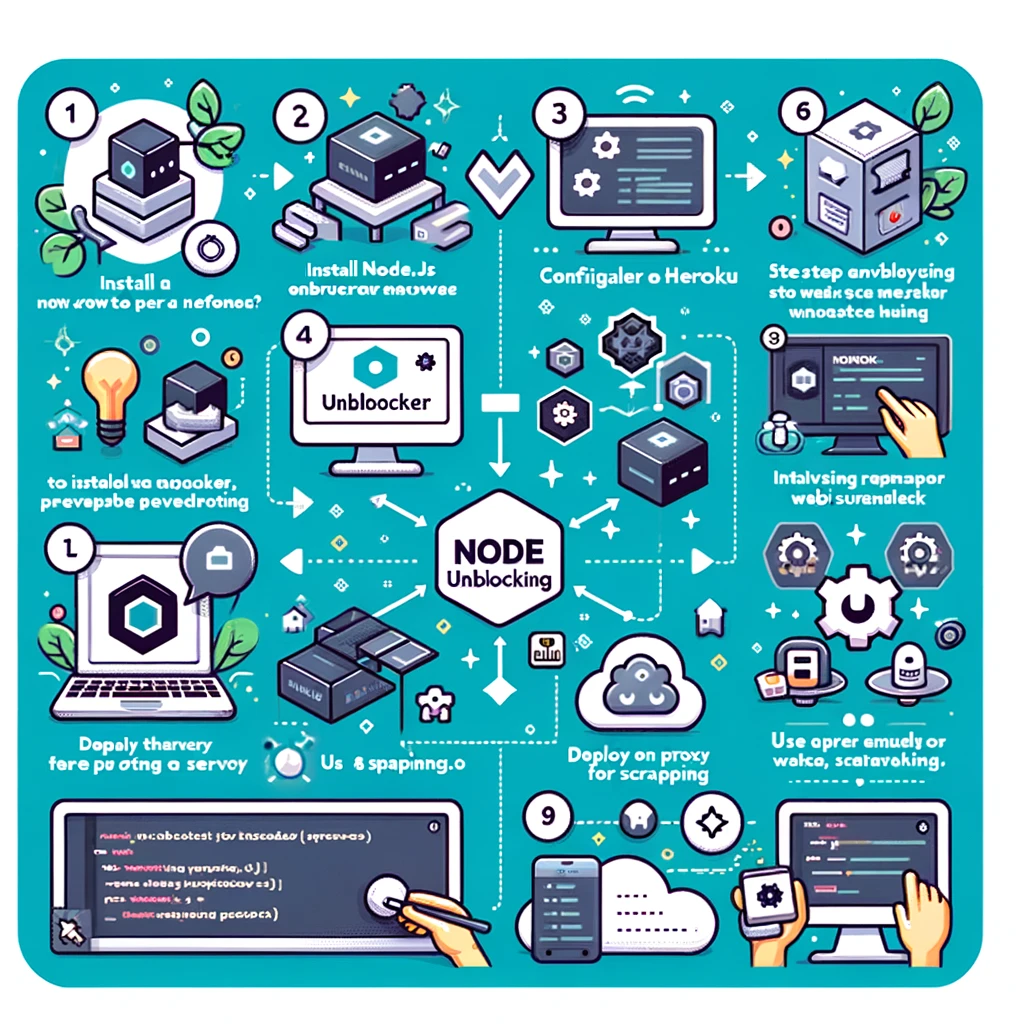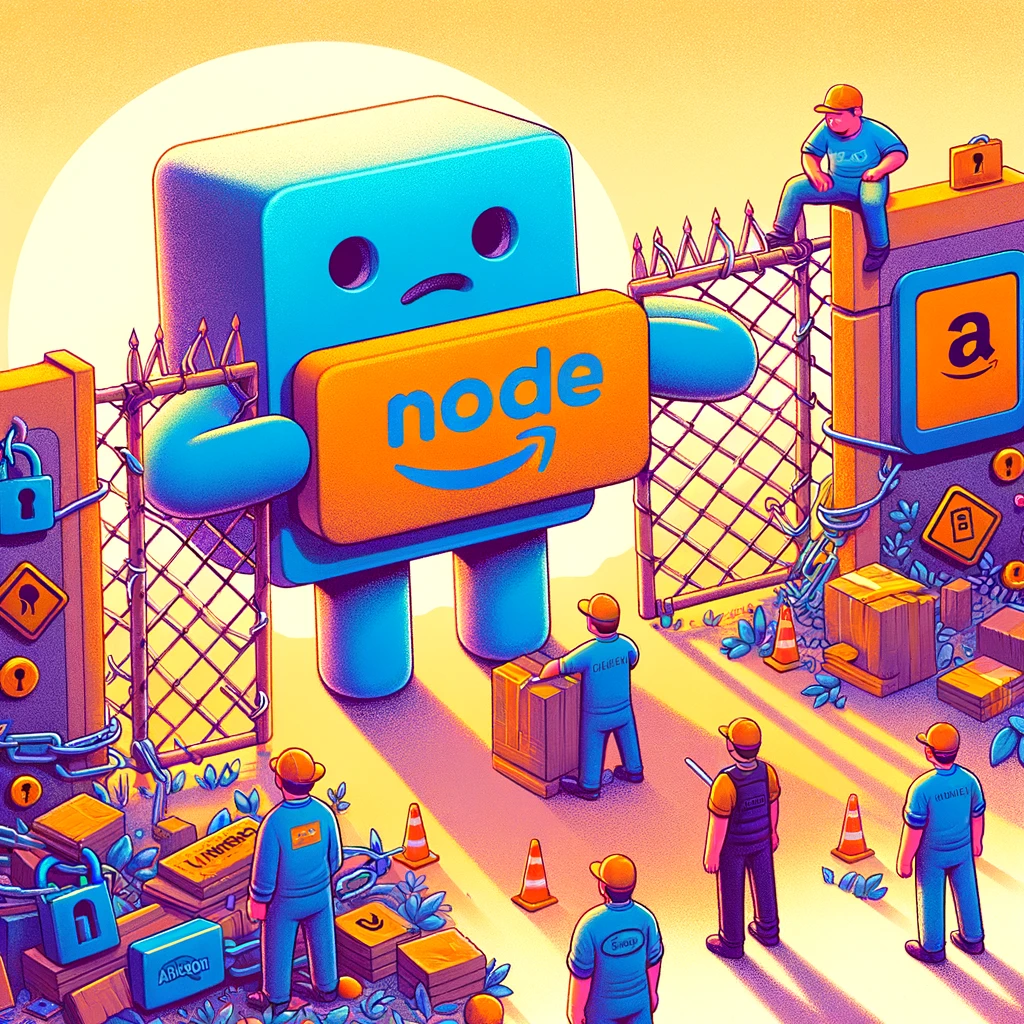Introduction to Node Unblocker
Node Unblocker is a web proxy tool that allows you to access any website through a proxy server, which can help you bypass web restrictions and enhance your web browsing security. Node Unblocker is designed in Node.js, a JavaScript runtime environment, and uses the Express framework, a web application framework, to create and manage the web server and the proxy. In this article, you will learn what Node Unblocker is, how it works, and how to use it for web scraping and overcoming web barriers.
Understanding Node Unblocker

Node Unblocker works by creating a web server that listens for requests from your browser. When you enter a URL in your browser, Node Unblocker intercepts the request and sends it to the proxy server. The proxy server then fetches the content from the target website and modifies it to make it compatible with your browser. For example, it rewrites the links, images, and scripts to point to the proxy server instead of the target website. It also injects some client-side scripts to handle cookies, redirects, and other features. Node_Unblocker then sends the modified content back to your browser, which renders it as if it came from the target website.
By using a proxy server, you can hide your real IP address and location from the target website. This way, you can bypass geo-restrictions, rate-limiting, and other web barriers that prevent you from scraping or viewing the content you want. You can also protect your privacy and security by avoiding malicious websites, trackers, and ads.
Also Read: MaximizeCache.shop: Speed Up Your Website Instantly
Setting Up Node Unblocker for Web Scraping
To use Node Unblocker for web scraping, you need to set up a basic Node Unblocker environment on your local machine or a remote server. Here are the steps to follow:
- Install Node.js and npm on your system.
- Create a folder for your Node_Unblocker project and create two files:
package.jsonandunblocker.js. - Install the
unblockerandexpresslibraries using thenpm installcommand. - Write the code that runs Node Unblocker in the
unblocker.jsfile. You can use the example code provided in this article or customize it as you wish. - Run the
unblocker.jsfile using thenodecommand. This will start the web server on a port of your choice. - Open your browser and go to the URL of your web server to see the Node_Unblocker page. You can enter any URL in the form and click the Go button to access the website through the proxy server.
Advanced Configuration and Deployment

You can customize Node Unblocker further by using some of the configuration options available in the unblocker library. For example, you can change the prefix, modify the request or response, inject client scripts, or use middleware functions. You can also deploy Node_Unblocker on a remote server, such as Heroku, to access it from anywhere and avoid any local network restrictions.
Practical Use Cases
You can use Node Unblocker for various purposes, such as:
- Bypassing rate-limiting: You can use Node Unblocker to hide your IP address and location from the target website and avoid triggering the rate limit. You can also use multiple proxy servers to distribute your requests across different IP addresses and locations.
- Bypassing geo-restrictions: You can use Node_Unblocker to access websites that are blocked or restricted in your region. You can choose a proxy server that is located in a different region where the website is available.
- Enhancing web browsing security: You can use Node Unblocker to protect your privacy and security by avoiding malicious websites, trackers, and ads. You can also use Node_Unblocker to access websites that are not secure or have expired certificates.
Limitations and Considerations

Node Unblocker is not a perfect solution for web scraping and overcoming web restrictions. It has some limitations, such as:
- Challenges with OAuth and large websites: Node Unblocker may not work well with websites that use OAuth or have complex features, such as Amazon, Google, and Facebook. These websites may detect the proxy server and block or redirect the requests.
- Maintenance considerations for large-scale scraping projects: Node_Unblocker may not be suitable for large-scale scraping projects that require high performance, reliability, and scalability. You may need to manage and maintain a large number of proxy servers, handle errors and failures, and deal with legal and ethical issues.
Alternatives and Solutions
If Node Unblocker does not meet your needs, you can use other tools or services that offer similar or better functionality. For example, you can use:
- Managed services like Scrapingdog: Scrapingdog is a web scraping API that allows you to scrape any website without any hassle. It handles the proxy management, browser rendering, captcha solving, and data extraction for you. You can use Scrapingdog to scrape any website with a simple HTTP request and get the data in JSON or HTML format.
- Web scraping frameworks like Scrapy: Scrapy is a web scraping framework that allows you to create and run web spiders that can crawl and extract data from websites. Scrapy is written in Python and provides various features, such as concurrency, middleware, pipelines, and selectors. You can use Scrapy to create custom web scraping solutions for complex and dynamic websites.
Conclusion
Node Unblocker is a web proxy tool that allows you to access any website through a proxy server, which can help you bypass web restrictions and enhance your web browsing security. Node_Unblocker is designed in Node.js and uses the Express framework to create and manage the web server and the proxy. You can use Node_Unblocker for web scraping and overcoming web barriers, but you should also be aware of its limitations, alternatives, and best practices. We hope this article has given you a clear and concise introduction to Node Unblocker and its use cases. Happy scraping! 😊
